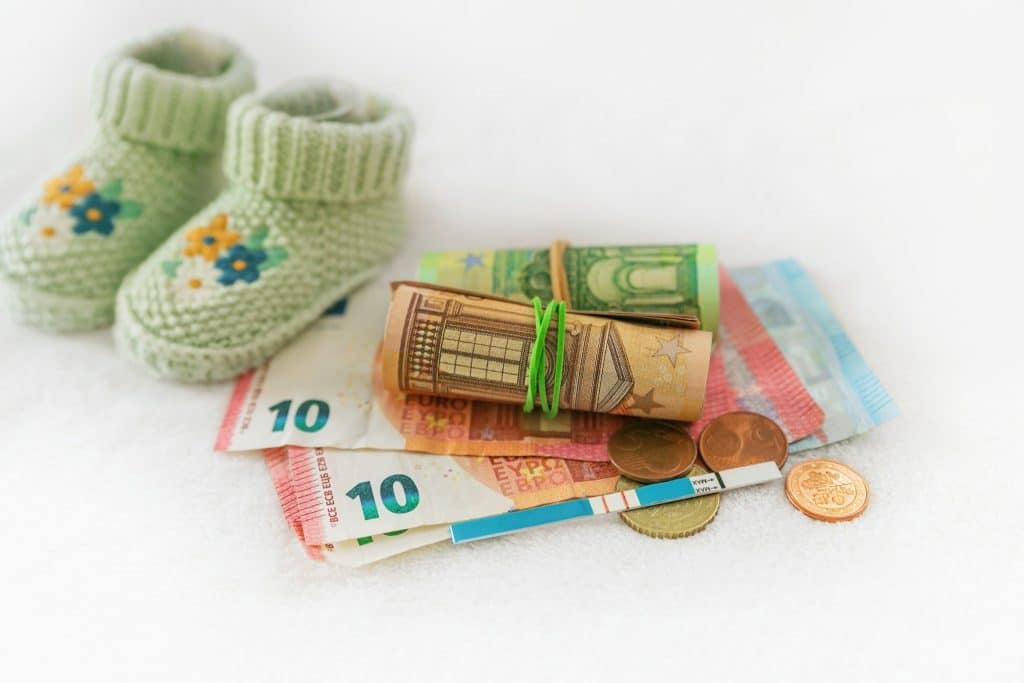Bringing a child into the world is magical. But let’s be real—it’s also expensive. From hospital bills to tiny shoes they’ll outgrow in a month, the costs add up quickly. If you’re a traveler used to hopping on last-minute flights or budgeting your way through Southeast Asia, the shift to budgeting for a baby can feel like moving from flip-flops to hiking boots. This guide breaks down the true costs of baby prep, the unexpected expenses, and how to make a plan that won’t derail your lifestyle completely. Whether you’re nesting at home or planning to travel with your newborn, budgeting for a baby starts right here.
Why Budgeting for a Baby Requires a Mindset Shift
Before diapers and daycare, there’s something deeper to understand—your approach to money has to shift. That “I’ll figure it out when I get there” backpacker attitude might have worked on the road, but budgeting for a baby requires forward thinking.
You’ll need to:
- Forecast long-term costs (not just this month)
- Get used to recurring expenses (hello, formula and wipes!)
- Expect the unexpected (like emergency pediatric visits)
It’s not about panic—it’s about preparation. Adopting a long-term financial mindset is key. You can find more resources on making these transitions smoother over at Finance Finest’s mindset section.

The Real Cost of a Baby in Year One
Let’s talk numbers. On average, American parents spend between $12,000 to $15,000 during the first year of their child’s life, according to the USDA. That includes necessities like:
- Prenatal care and hospital delivery
- Baby gear (crib, stroller, car seat)
- Daily essentials (diapers, wipes, formula)
- Health insurance and medical checkups
If you’re budgeting for a baby while also managing travel or remote work, you’ll need to adjust your cost of living strategy. Things like travel insurance that includes maternity, or accommodations with baby-friendly amenities, might become part of your financial mix.
Monthly Breakdown: What to Expect
When budgeting for a baby, think in monthly increments to better track your flow. Here’s a basic monthly snapshot:
| Expense Category | Average Monthly Cost |
|---|---|
| Diapers & Wipes | $70–$100 |
| Formula/Breastfeeding Supplies | $50–$150 |
| Clothing | $40–$60 |
| Baby Gear (spread across months) | $100–$200 |
| Childcare | $600–$1,200+ |
| Medical Costs | $50–$100 |
These numbers can vary dramatically depending on where you live, whether you have insurance, and how much help you receive from friends or family. But for most parents, budgeting for a baby means allocating at least $1,000–$1,500/month consistently.
Travel-Specific Baby Budgeting Tips
If you’re not ready to give up your travel lifestyle, it’s totally doable—with some planning. Here are tips for budgeting for your baby on the go:
- Portable gear: Invest in travel-friendly items like collapsible cribs, baby carriers, and lightweight strollers. These save both money and stress.
- Health insurance with international coverage: Make sure your baby is covered while abroad. Premiums may increase, but it’s non-negotiable.
- Flexible accommodations: Prioritize Airbnbs or family hostels with kitchens and laundry. This reduces eating out and clothing costs.
- Advance vaccinations: Some countries require special vaccines for babies. Budget extra for these before a trip.
Check out Finance Finest’s lifestyle section for more ideas on balancing babyhood and travel.
Baby Gear: What’s Actually Worth It?
Retailers will tell you that every gadget is essential. Truth? You only need the basics.
Must-haves:
- Car seat
- Crib or travel bassinet
- Stroller
- Diapers and wipes
- Onesies and blankets
- Baby monitor (especially if you travel or work remotely)
Skip or borrow:
- Bottle warmers (just use warm water)
- Wipe warmers (baby doesn’t care)
- Fancy outfits (they’ll stain it instantly)
- Expensive changing tables (a mat on any flat surface works)
One of the smartest ways to save while budgeting for a baby is to buy secondhand. Facebook Marketplace, Craigslist, and consignment stores often offer baby gear in great condition.
Emergency Fund: Yes, You Still Need It
Travelers often live lean. But with a baby, having an emergency fund is non-negotiable. Medical costs can be sudden and steep. Baby gear can break. Travel plans can shift.
Build a 3–6 month emergency fund that includes:
- Rent and utilities
- Food and baby essentials
- Insurance premiums
- Travel funds if you’re abroad and need to return quickly
Even if you’re working from Bali or Barcelona, budgeting for a baby means preparing for the what-ifs, not just the what-nows.
Budgeting Before the Baby Arrives
The earlier you start, the smoother it gets. Here’s a pre-baby checklist to keep you financially ready:
- Review your health insurance: What’s covered for delivery? For your baby afterward?
- Estimate delivery costs: Vaginal births and C-sections come with different bills.
- Start buying in stages: Get essentials month by month instead of all at once.
- Create a registry: Let friends and family help. It saves serious money.
- Look into parental leave: Whether self-employed or salaried, know your rights and how much income you’ll have.
All of this contributes to smarter budgeting for a baby, so you’re not overwhelmed in month nine with both anxiety and expenses.

Digital Tools That Help
You don’t have to track everything on a notepad. Try these tools to manage budgeting for a baby:
- You Need a Budget (YNAB): For zero-based budgeting fans.
- Mint: Good for categorizing expenses and seeing trends.
- Babylist: Combines registry and planning in one.
- Splitwise: If you and your partner split finances, this keeps things clean.
- Digital tools bring structure and automation to your journey, which is helpful when baby brain kicks in.
What Surprised Me Most (from Other Parents)
We gathered tips from nomadic families and frequent travelers who had their first baby in the past two years. Here’s what they didn’t expect:
- “How fast formula costs add up—and we were planning to breastfeed.”
- “We didn’t budget for mental health support. Therapy helped us both.”
- “Our baby went through four sizes in three months. Clothes got expensive quickly.”
- “Insurance abroad didn’t cover vaccinations. That was a shocker.”
- If you’re learning budgeting for a baby, factor in the surprises. Almost every parent has at least one they didn’t see coming.
Baby Budgeting While Freelancing or Traveling Full-Time
Many remote workers think having a baby will end their flexibility. It won’t—but budgeting for a baby means preparing for irregular income.
- Set a monthly income baseline: Know your minimum.
- Have a separate baby savings account: For upcoming costs.
- Time your work hours around naps: Childcare isn’t always needed full-time.
- Lean into community: Other traveling families are a goldmine for gear swaps and local resources.
You’ll find more tips like these on Finance Finest’s budgeting hub, especially if you’re juggling both parenthood and mobility.
The Ongoing Costs You Might Miss
Budgeting for a baby isn’t just about birth and the first year. There are small but recurring costs that sneak in later:
- Growth spurts = new clothes every few weeks
- Baby-proofing gear as mobility increases
- Learning toys and sensory items
- Babysitting or part-time help
- Passport photos and documents if traveling
It’s a long game. The earlier you build financial habits, the more freedom you’ll keep.
Why Budgeting for a Baby Is a Family Project
It’s easy to assume one parent will “handle the money stuff.” But budgeting for a baby works best when both parents are involved, no matter who’s earning more.
- Hold monthly “baby budget” check-ins
- Share a notes app for baby-related spending
- Celebrate savings goals (like getting a stroller 50% off!)
- Divide financial responsibilities (e.g., one handles insurance, the other gear purchases)
Finances, like parenting, require teamwork.

Final Section: Raising a Baby Without Breaking the Bank
You can absolutely give your baby the world—without blowing your budget. Whether you’re raising them in a tiny apartment or a camper van, budgeting for your baby is a mindset rooted in resourcefulness. Track, plan, and simplify where you can. Prioritize needs over nice-to-haves, and remember: the most valuable thing your baby needs is you—not a $1,200 crib.
So pack your diaper bag and your Google Sheet. Because the journey doesn’t end with baby’s arrival—it just gets a little more exciting.
Take control of your finances—start your smarter parenting journey at Finance Finest.
